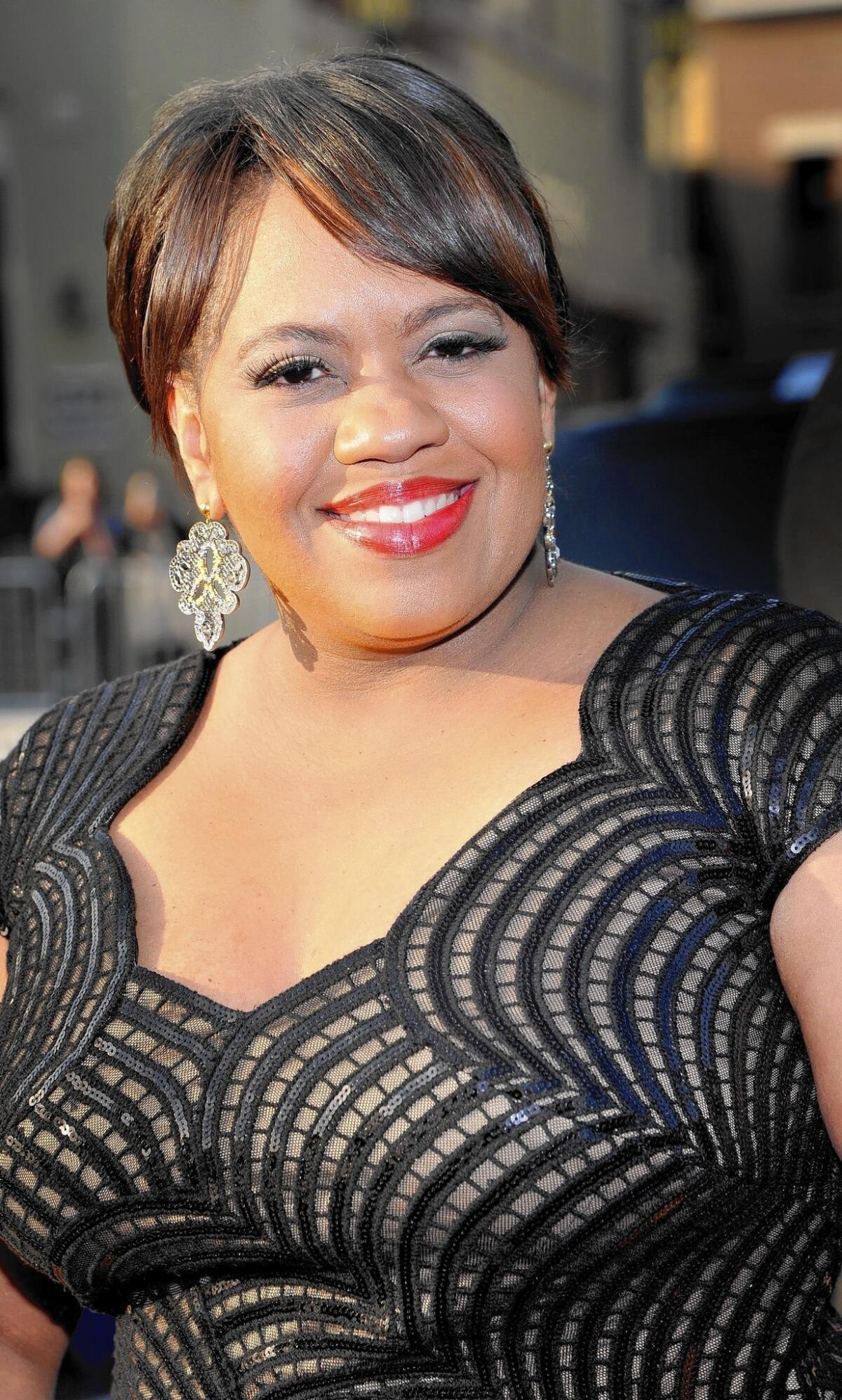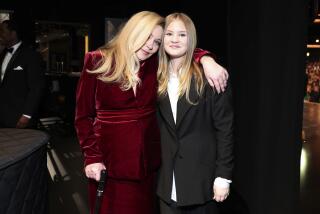Chandra Wilson plays a doctor, learns to be a patient advocate

- Share via
Chandra Wilson, who stars as Dr. Miranda Bailey on the ABC series “Grey’s Anatomy,” knows what it’s like on the other side of the prescription pad. And she knows what it’s like to advocate for an ill child. Her 20-year-old daughter has long struggled with mitochondrial disease, disorders caused by problems with the mitochondria, which generate energy for the cells.
How did you first know that something was wrong?
The first manifestations were cyclical vomiting syndrome. It would usually come in conjunction with her menstrual cycle, so we figured out that was what the trigger was. But because they were so cyclic and so timely, her information was forwarded to medical genetics and her genetics levels were tested — that was when we found out.
But as a mom, you think back on how your kid grew up, and initially she was a failure to thrive. ... When you connect all those dots, in retrospect, you say, “Oh, OK, so it’s been there all the time, but it just will manifest in different ways as time goes on.”
Was it hard for you to find a diagnosis and a specialist?
No, just every time she’d go into a cycle of vomiting we’d still go back to the hospital, but I would just notate everything that I saw to try to find some pattern of consistency. ... That’s when I learned how to become an advocate. And I walked around with my big old folder with a true log of every episode. You can’t expect that a hospital or doctor’s office is going to follow everything 100% with all the patients — so that’s where you come in.
What should parents be looking for with their kids?
Like I said, her manifestations started with cyclical vomiting syndrome. That makes it different from a virus or something like that — it’s the nausea. It is so all-consuming. They treat cyclical vomiting patients with cancer medications and it doesn’t affect the nausea at all. That’s how overwhelming it is — and you know right after stomach content is gone you still feel that retching.
How was it for you as a parent to find out that this is what she has?
Actually, once we got a name for it, it felt like now we have something to look up, something to do. The name meant everything — you’ll hear that with mitochondrial sufferers across the board. It’s the name that gives you power to be able to look for something and at least try to get to where you need to get.
Your daughter is 20 now. Is it different working with a young adult to manage the disease versus working with a teenager?
It certainly is challenging once the teen has become an adult. When they’re kids, there’s no will that’s in the way. But when they start coming of age, at 19, 20, 21, they say, “I am going to figure this out by myself.” Well, OK, fine, that’s a nice journey, but you can’t do it by not taking any of your protocol just to see what’s going to happen. They’re not kids anymore, so they have to figure that out, and the painful part of that is that there are physical repercussions for it. But that’s how they’re growing up, whether it’s managing illness or managing your life. I keep my advocacy there — I say, “I am no longer your manager, I’m just your consultant. So whenever you want to talk to me, I’m right here!”
ALSO:
For those with orthorexia, diet can never be ‘pure’ enough
As marijuana laws change, health risks of pot use are weighed






